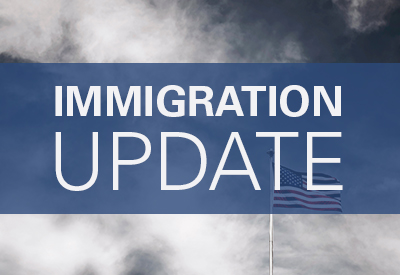There has been a lot of movement with Special Immigrant Juvenile Status. Several changes are important and noteworthy:
DEFERRED ACTION/WORK AUTHORIZATION:
On March 7, 2022, U.S. Citizenship and Immigration Services (USCIS) announced that it is updating the USCIS Policy Manual to consider deferred action and related employment authorization for noncitizens who have an approved Form I-360, Petition for Amerasian, Widow(er), or Special Immigrant, for Special Immigrant Juvenile (SIJ) classification but who cannot apply to adjust status to become a lawful permanent resident (LPR) because a visa number is not available.
Deferred action is an act of prosecutorial discretion that defers proceedings to remove a noncitizen from the United States for a certain period. Deferred action does not provide lawful status. USCIS will consider deferred action on a case-by-case basis and will grant it if the SIJ warrants a favorable exercise of discretion. USCIS will automatically conduct deferred action determinations for individuals with SIJ classification who cannot apply for LPR status because a visa number is not available. A separate request for deferred action is not required and will not be accepted by USCIS. If USCIS grants deferred action, it will be valid for a period of four years. Beginning on May 6, 2022, a SIJ who has been granted deferred action will be able to apply for employment authorization for their period of deferred action by filing Form I-765, Application for Employment Authorization.
MARRIAGE:
The Department of Homeland Security recently issued a final rule which will update the regulations regarding Special Immigrant Juvenile Status (SIJS); specifically, 8 CFR § 204.11, § 205.1, and § 245.1.1 The purpose of the updates is to reflect statutory changes, modify certain provisions, codify existing policies, and clarify eligibility requirements. The regulations went into effect on April 7, 2022, and overall are a positive development for SIJS petitioners.
An important change in policy, USCIS has removed marriage of the SIJS beneficiary as a basis for automatic revocation. This means the SIJS petitioner only needs to be unmarried at the time of filing the SIJS petition and the time of adjudication of the SIJS petition. This dramatic and valuable change will allow many young people to move forward with marriage while waiting for their priority date to become current. However, it is not known at this time whether USCIS will apply this change in policy retroactively to individuals who previously married after their SIJS petition was approved but before their adjustment of status application was adjudicated.
SIJS OVERVIEW:
Due to the large number of SIJS applications, for the last 5-6 years, there has been a backlog for children from Guatemala, Honduras, El Salvador, and Mexico. As of April 2021, there are 44,000 SIJS beneficiaries remaining in the backlog. SIJS beneficiaries from El Salvador, Guatemala, and Honduras have waited an average of 4 years before their priority date is current to apply for adjustment of status.
SIJS visas are part of the employment-based fourth preference category. The fourth category receives only 7.1% of the 140,000 visas generally available per year. SIJS beneficiaries are also subject to annual country caps applicable to employment-based immigration: 7% per-country limit. There is an overwhelming number of SIJS beneficiaries who are also in removal proceedings: 92% of Honduran SIJS adjustment applicants, 90% of Guatemalan applicants, and 84% of Salvadoran applicants.
If someone you know can benefit from Special Immigrant Juvenile Status due to abuse, neglect or abandonment by one or both parents, please contact our office today.









